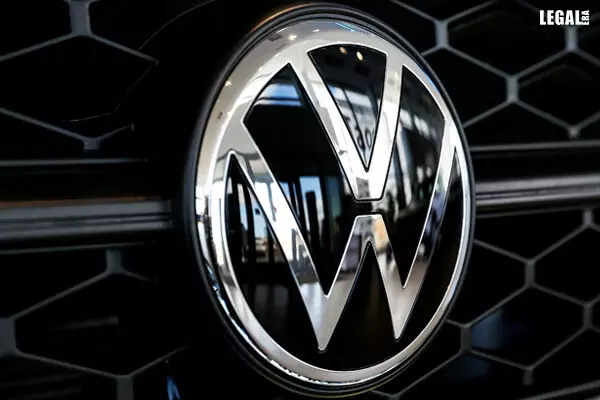- Home
- News
- Articles+
- Aerospace
- Artificial Intelligence
- Agriculture
- Alternate Dispute Resolution
- Arbitration & Mediation
- Banking and Finance
- Bankruptcy
- Book Review
- Bribery & Corruption
- Commercial Litigation
- Competition Law
- Conference Reports
- Consumer Products
- Contract
- Corporate Governance
- Corporate Law
- Covid-19
- Cryptocurrency
- Cybersecurity
- Data Protection
- Defence
- Digital Economy
- E-commerce
- Employment Law
- Energy and Natural Resources
- Entertainment and Sports Law
- Environmental Law
- Environmental, Social, and Governance
- Foreign Direct Investment
- Food and Beverage
- Gaming
- Health Care
- IBC Diaries
- In Focus
- Inclusion & Diversity
- Insurance Law
- Intellectual Property
- International Law
- IP & Tech Era
- Know the Law
- Labour Laws
- Law & Policy and Regulation
- Litigation
- Litigation Funding
- Manufacturing
- Mergers & Acquisitions
- NFTs
- Privacy
- Private Equity
- Project Finance
- Real Estate
- Risk and Compliance
- Student Corner
- Take On Board
- Tax
- Technology Media and Telecom
- Tributes
- Viewpoint
- Zoom In
- Law Firms
- In-House
- Rankings
- E-Magazine
- Legal Era TV
- Events
- Middle East
- Africa
- News
- Articles
- Aerospace
- Artificial Intelligence
- Agriculture
- Alternate Dispute Resolution
- Arbitration & Mediation
- Banking and Finance
- Bankruptcy
- Book Review
- Bribery & Corruption
- Commercial Litigation
- Competition Law
- Conference Reports
- Consumer Products
- Contract
- Corporate Governance
- Corporate Law
- Covid-19
- Cryptocurrency
- Cybersecurity
- Data Protection
- Defence
- Digital Economy
- E-commerce
- Employment Law
- Energy and Natural Resources
- Entertainment and Sports Law
- Environmental Law
- Environmental, Social, and Governance
- Foreign Direct Investment
- Food and Beverage
- Gaming
- Health Care
- IBC Diaries
- In Focus
- Inclusion & Diversity
- Insurance Law
- Intellectual Property
- International Law
- IP & Tech Era
- Know the Law
- Labour Laws
- Law & Policy and Regulation
- Litigation
- Litigation Funding
- Manufacturing
- Mergers & Acquisitions
- NFTs
- Privacy
- Private Equity
- Project Finance
- Real Estate
- Risk and Compliance
- Student Corner
- Take On Board
- Tax
- Technology Media and Telecom
- Tributes
- Viewpoint
- Zoom In
- Law Firms
- In-House
- Rankings
- E-Magazine
- Legal Era TV
- Events
- Middle East
- Africa
Consignments Of Volkswagen Units Not Held: Customs Dept Tells Bombay High Court

Consignments Of Volkswagen Units Not Held: Customs Dept Tells Bombay High Court
The next hearing has been scheduled for 20 February
Skoda Auto Volkswagen India had recently challenged the Customs Department’s $1.4 billion tax demand in the Bombay High Court, terming it "arbitrary, illegal and exorbitant.”
The department claimed the company misclassified Audi, Skoda and Volkswagen cars’ import as ‘individual parts’ instead of Completely Knocked Down (CKD) units, thereby paying significantly lower customs duties.
However, it informed the court that no consignment of the company were or will be stopped following the notice.
A division bench comprising Justice BP Colabawalla and Justice Firdosh Pooniwalla has scheduled the next hearing on 20 February.
The CKD units attract a 30-35 percent customs duty, but the company declared its imports as separate components in different shipments and paid only 5-15 percent duties.
The court sternly questioned the company as to why it imported all components except one item and classified them as individual parts and not a CKD unit.
The bench said, "You (the petitioner company) bring in all the components except for one. Let's say the gearbox. You would still fall under the parts component and submit import duty at a lower rate. That is just clever tax planning.”
Justice Colabawalla added, "Even if you import all parts in one assignment except the gearbox and engine, your argument of individual parts would stand. Won't it. Still, you won't come under the CKD unit component.”
Appearing for the Customs department, which falls under the Ministry of Finance, Additional Solicitor General N Venkatraman told the court that to date they had not stopped any consignment of the German automaker and would not do so.
Representing Skoda, senior counsel Arvind Datar sought the show-cause notice to be quashed, terming it illegal and arbitrary.
He argued that the authorities could not demand an exorbitant amount in 2024, after clearing the bills from 2011 to 2024, wherein tax was paid as per the individual parts component.
Datar added, “The company has 6,000 people working in India. Where will it go? It’s a matter of life and death now.” He said the automobile company had been importing individual car parts and not a CKD unit, as claimed by the Customs department.
The counsel reasoned, "The whole controversy is about whether it is parts of the CKD units. The petitioner company has been importing parts since 2001.”
In 2011, a modification was issued increasing the customs duty imposed on CKD units.
However, the company’s counsel told the bench that from 2011 to 2024, the petitioner company did not receive any notice. But in September 2024, a customs officer at the Nhava Sheva port near Mumbai decided that the company's import came under the CKD unit category (unassembled condition) and issued a show-cause notice.
"The authorities did not rake up the issue from 2011 to 2024. Why suddenly in 2024? Till 2023-2024, the company has been paying duty as charged for parts and not CKD. The show-cause notice must be quashed," the counsel pleaded.



